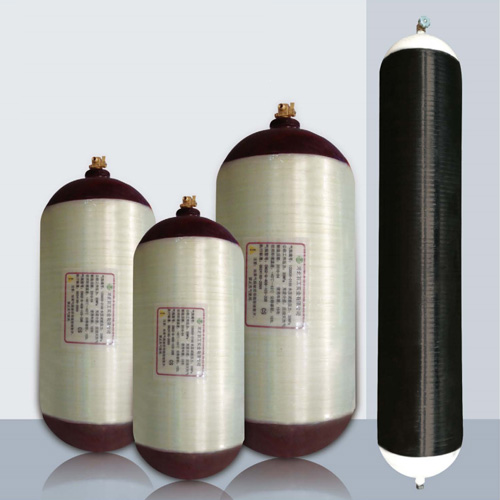What You Need To Know About CNG Gas Cylinder?
In today's ever-evolving world, the demand for alternative and sustainable energy sources is on the rise. As concerns about environmental sustainability and the depletion of fossil fuels continue to mount, the search for cleaner and more efficient energy solutions has become paramount. One such solution that has gained significant attention in recent years is Compressed Natural Gas (CNG). In this comprehensive guide, we will delve into everything you need to know about CNG gas cylinders, from their construction and benefits to safety measures and maintenance.

Understanding CNG Gas Cylinders
CNG Gas Cylinders: A Brief Overview
Compressed Natural Gas, or CNG, is a natural gas stored at high pressure in specially designed cylinders. These cylinders are constructed to withstand the immense pressure generated by the compression of natural gas, typically at pressures of 3,000 to 3,600 pounds per square inch (psi). They are a crucial component of CNG-powered vehicles and stationary storage systems.
Construction and Material
CNG gas cylinders are constructed using advanced materials that ensure their safety and durability. The most common materials used are carbon fiber and aluminum. These materials offer the perfect balance between strength and weight, making them ideal for CNG cylinder construction. The use of lightweight materials also contributes to better fuel efficiency in CNG-powered vehicles.
Benefits of CNG Gas Cylinders
1. Environmental Advantages
One of the primary reasons for the increasing popularity of CNG is its environmental benefits. When compared to traditional gasoline or diesel, CNG is a cleaner-burning fuel. It produces significantly lower emissions of harmful pollutants such as carbon monoxide, nitrogen oxides, and particulate matter. This reduction in emissions contributes to improved air quality and helps combat climate change.
2. Cost-Efficiency
CNG is not only environmentally friendly but also cost-effective. Natural gas prices are generally lower and more stable than oil prices, leading to substantial savings for consumers and businesses alike. Additionally, CNG-powered vehicles often require less maintenance, resulting in reduced long-term operating costs.
3. Energy Security
CNG also enhances energy security. As a domestically available resource in many regions, natural gas reduces dependency on foreign oil and provides a reliable source of energy. This contributes to a more stable and secure energy supply.
Safety Measures for CNG Gas Cylinders
Strict Regulations
The safe use of CNG gas cylinders is paramount. Regulatory bodies around the world have established stringent standards and regulations for the design, manufacturing, and testing of these cylinders. These regulations ensure that CNG cylinders meet the highest safety standards.
Regular Inspections
To ensure the safety of CNG cylinders, routine inspections and maintenance are essential. Cylinders should be inspected for damage, corrosion, or any signs of wear. Any damaged or compromised cylinders should be immediately taken out of service and replaced.
Proper Installation
Proper installation of CNG cylinders is crucial. Only certified professionals should handle the installation process, ensuring that all safety protocols are followed.
Maintenance of CNG Gas Cylinders
1. Inspection Schedule
Regular inspections should be conducted according to the manufacturer's recommendations and regulatory guidelines. These inspections typically include checking for leaks, assessing the cylinder's structural integrity, and examining the valve systems.
2. Valve Maintenance
Valve maintenance is vital to prevent leaks and ensure the efficient operation of CNG cylinders. Valves should be inspected and serviced regularly to guarantee their proper functioning.
3. Cylinder Replacement
CNG Storage Skid Container have a limited lifespan, typically around 15 to 20 years, depending on usage and other factors. It is crucial to replace cylinders when they reach the end of their service life to avoid safety risks.
Conclusion
In summary, CNG gas cylinders play a pivotal role in harnessing the potential of Compressed Natural Gas as a cleaner and more sustainable energy source. Their construction, benefits, safety measures, and maintenance are all vital aspects to consider when adopting CNG as an alternative fuel. By adhering to strict safety guidelines and conducting regular maintenance, individuals and businesses can enjoy the numerous advantages of CNG while contributing to a greener and more sustainable future.
604
0
0


Comments
All Comments (0)